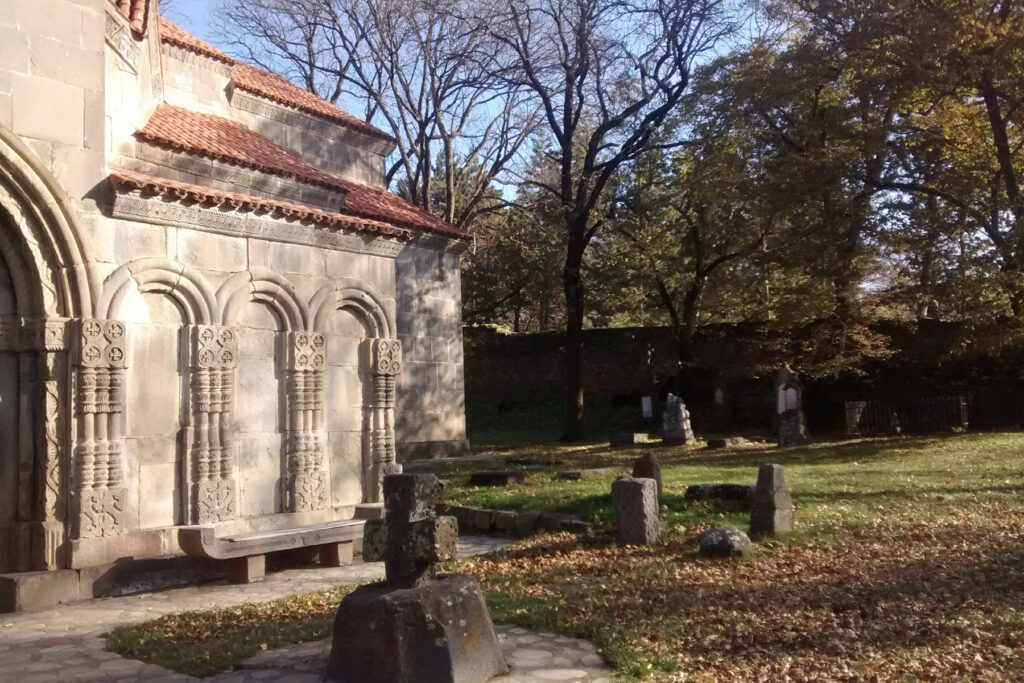Georgia’s parliament has passed a law allowing the Georgian Orthodox Church to claim hundreds of hectares of state-owned forests around churches and monasteries across the country.
Seventy-nine MPs voted in favour of the bill and none against in a plenary session on Friday.
The law will allow the Church to claim up to 20 hectares of land owned by the state Forest Fund, the equivalent of around 28 football fields, around every church and monastery in the country. The Church will be granted ownership of each parcel of land upon appealing to the government.
The law does not apply to other religious organisations.
The bill was initiated by the Ministry of Environmental Protection and Agriculture. In February, the head of the ministry’s Biodiversity and Forest Department, Karlo Amirgulashvili, told Netgazeti that they saw the need for the amendments after consulting with the Church.
Deputy Minister of Environment Nino Tandirashvili defended the bill on Wednesday during a hearing of parliament’s Environmental Protection Committee.
Tandirashvili said there had been ‘false claims’ that the government was ‘purposefully giving the [Church] forests prior to the elections’.
She argued that the law would accord the Church more responsibilities than rights as they would have to care for and sustainably manage any forests they took ownership of.
‘With this bill, we are putting a limit on the amount of forest that [the Church] can receive around its churches and monasteries’, Tandirashvili said.
‘The main goal of this bill is to protect these important resources — 40% of our territory — even better.’
Welcoming the initiative on Friday before it passed, the Bishop of Akhalkalaki and Kumurdo, Nikoloz Pachuashvili, insisted that the church would take responsibility for protecting forests they took ownership of.
‘I can’t think of a single clergyman who would be such a barbarian to receive a forest, cut it down, and sell and destroy it. Ninty-five per cent of Georgians consider themselves Orthodox — how can a minority protect the property of majority?’, Pachuashvili said.
‘Inequality among religious groups’
The law was adopted despite a petition against it gaining more than 5,000 signatures. The petition argues that the law ‘violates the rights of each citizen and imposes an unjust practice of managing and distributing strategic natural resources’.
Opposition parties and human rights groups, also warned that the law contradicts the constitutional principle of separation of church and state.
In a statement on 14 February, the Tolerance and Diversity Institute (TDI), a local rights group, said the law ‘provides the dominant religious organisation with additional property and financial privileges’.
‘It is unclear what religious interests the Church might have for ownership of these forests’, the statement said.
According to TDI, the Georgian Orthodox Church has already received 64 square kilometres of land from the state in addition to payments of ₾30 million annually from the budget.
‘The scale of funding and real estate being given to the [Church] by the state is growing in the pre-election period, which can be explained by the government’s wish to gain political support from this influential institution’, the statement said.
TDI warned that the law would further deepen the ‘inequality among religious groups’ in Georgia.
In July 2018, Georgia’s Constitutional Court ruled that privileging the Georgian Orthodox Church over other religious groups in tax and state property legislation was discriminatory and unconstitutional. The case was filed against the state by eight minority religious groups.
Before the ruling, Georgian state property law allowed the Georgian Orthodox Church to be granted ownership of state property free of charge. Other religious groups in the country could only be granted the right to use state property.
The government had argued the legislation was intended to contribute to the ‘special relationship’ between the state and the Georgian Orthodox Church.
However, the court ruled that ‘recognition of the special role of the Orthodox Church does not mean it should be privileged.’




 22 May 2020
22 May 2020



